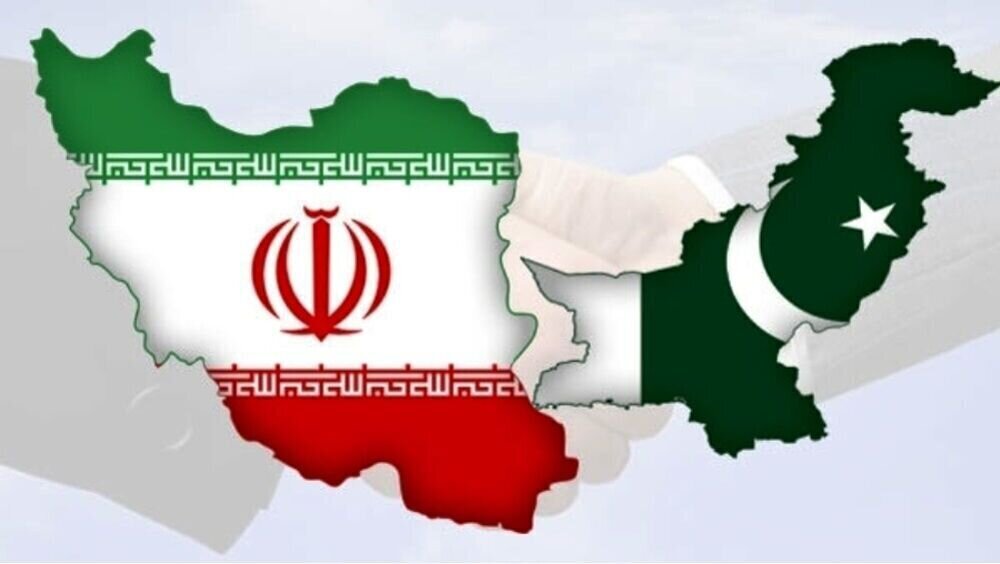Pakistan-Iran defense cooperation: navigating regional tensions and non-kinetic threats

RAWALPINDI – Pakistan's Defense Day on September 6 serves as a symbolic reminder of the nation’s resilience and growing defense capabilities. It marks a day when Pakistan not only celebrates its military achievements but also reflects on its role in fostering regional stability.
In recent years, Pakistan has found itself at the crossroads of major regional transformations, with a focus on fostering cooperation with neighboring countries. Among these, Pakistan-Iran defense cooperation has become increasingly significant, particularly as both nations face common security threats such as non-state actors, cyber terrorism, and the ever-evolving dynamics of West Asia.
The recent exchange of fire between Pakistani and Iranian border forces is a stark reminder of the challenges both countries face along their shared border. It also reminds us how non-state actors can aggravate war between two states with unforeseen consequences. However, these incidents also underscore the importance of deepening defense cooperation to address security concerns more effectively by using military diplomacy and respecting each other's sovereignty.
The Pakistan-Iran border, stretching over 900 kilometers, has long been a zone of concern for both countries. The region is marked by complex terrain and porous borders, making it susceptible to the activities of non-state actors, drug traffickers, and militant groups. Non-state actors pose a significant threat to the stability of both Pakistan and Iran. These actors, including separatist groups, militant factions, and drug traffickers, often operate in the border regions, taking advantage of the difficult terrain and weak governance structures.
The recent skirmishes between border forces underscore the fragility of the situation. Despite the tensions, both nations have repeatedly emphasized the need for cooperation to secure the border and prevent non-state actors from exploiting it. By strengthening defense cooperation, Pakistan and Iran can jointly tackle the threats posed by these groups, enhancing border security and fostering greater regional stability.
Non-state actors are not the only concern for both nations. The rise of cyber terrorism and non-kinetic warfare poses an evolving challenge that transcends physical borders. In the age of digital connectivity, cyber threats have become increasingly sophisticated, with non-state actors and state-sponsored entities targeting critical infrastructure, government institutions, and military capabilities. Pakistan and Iran, having dealt with various non-kinetic threats in the past, have developed a level of expertise that can be shared with Iran.
Pakistan’s defense capabilities, particularly its cyber defense infrastructure, have grown significantly in recent years. Pakistan has placed a strong emphasis on building cyber defense units, focusing on both defensive capabilities. The country’s experience in countering non-kinetic threats, such as information warfare, cyber espionage, and propaganda campaigns, makes it well-positioned to deal with such threats. Similarly, Iran has fought a long war in the non-kinetic domain without any external help. This has allowed Iran to develop indigenous capabilities to fight any cyber or non-traditional threat. Both sides need to share experience and collaborate to deal with non-traditional threats.
The regional dynamics of West Asia are undergoing significant shifts, particularly in the aftermath of the ongoing Gaza conflict. The conflict has not only exacerbated tensions between Israel and Palestine but has also drawn in various regional powers, including Iran. The geopolitical landscape of West Asia is becoming increasingly complex, with rivalries intensifying and alliances shifting. Amidst these changing dynamics, Pakistan and Iran find themselves facing common challenges. Both nations have a vested interest in maintaining stability in the region and preventing the escalation of conflicts that could have far-reaching consequences.
The changing regional dynamics and growing threats demand deepening defense ties between Iran and Pakistan. Pakistan’s defense capabilities have evolved significantly over the years. The country’s defense industry has grown, producing a wide range of indigenous military equipment, from fighter jets to unmanned aerial vehicles (UAVs) and advanced missile systems. Pakistan’s expertise in defense production can be a valuable asset for Iran, particularly as both nations seek to reduce their dependence on foreign military imports.
One area where Pakistan’s experience can be particularly beneficial to Iran is in dealing with non-kinetic threats. Over the years, Pakistan has developed a comprehensive approach to countering asymmetric warfare, which includes not only conventional military strategies but also a focus on non-traditional threats such as cyber terrorism and information warfare. Iran, facing similar challenges, can learn from Pakistan’s experiences in addressing these threats more holistically.
The changing regional dynamics, including the ongoing Gaza conflict and shifting alliances in West Asia, necessitate stronger coordination between the two countries. Joint military exercises, intelligence sharing, and enhanced border management can pave the way for a more robust defense partnership. Such cooperation will not only enhance the security of Pakistan and Iran but also contribute to broader regional stability, helping both nations navigate the complexities of a rapidly changing geopolitical landscape. As Pakistan continues to strengthen its defense capabilities, Iran stands to benefit from this partnership, creating opportunities for both countries to emerge as more resilient and capable actors in the region.
